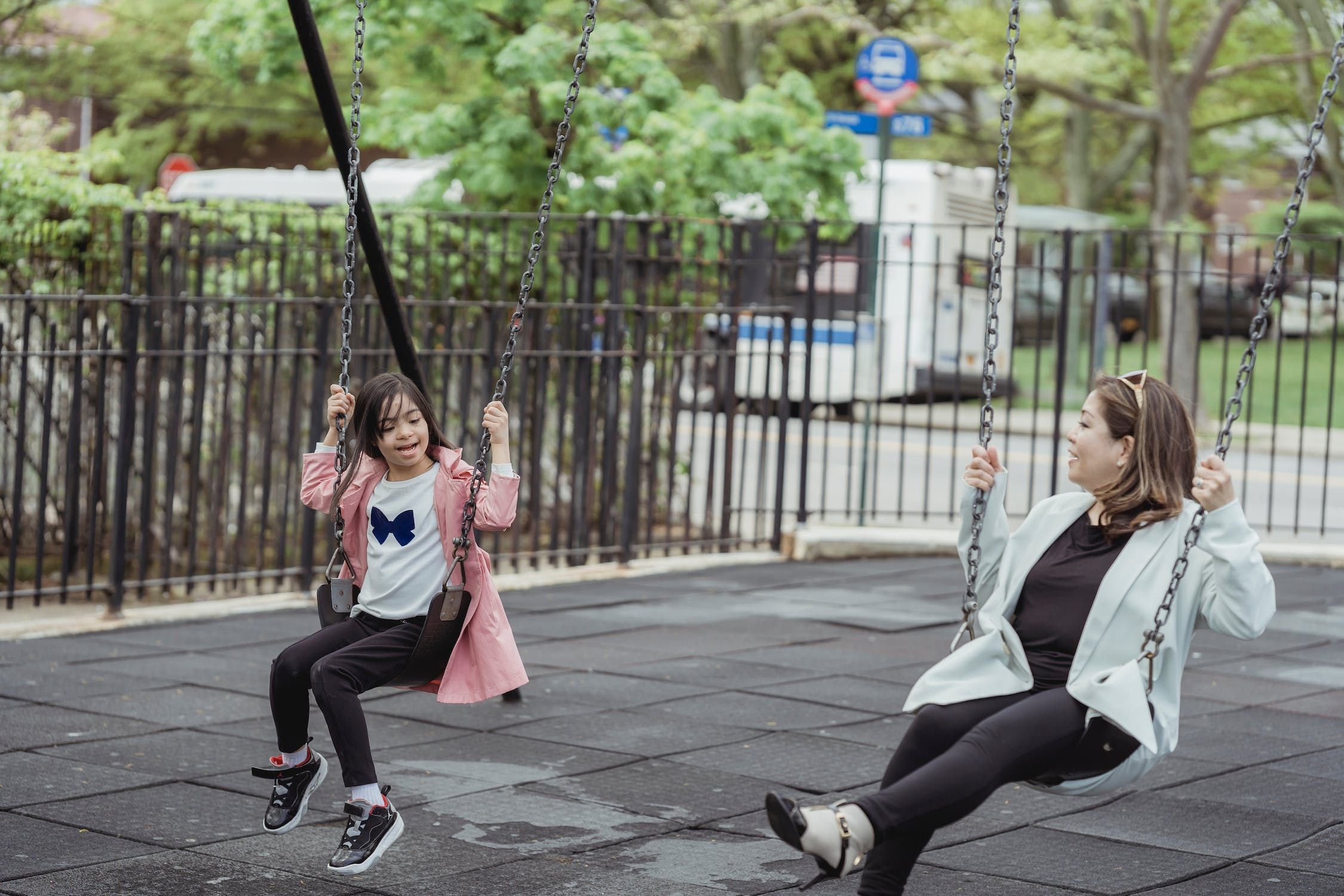It has been said young children are like sponges. They are curiously watching and listening to everything around them. The words they hear and things they see are constantly being absorbed and shaping their little minds. Through adult interactions, children develop communication and social-emotional skills while learning about the world around them.
According to the National Association for the Education of Young Children, relationships and interactions with important adults in a young child's life have a great impact on brain development and ongoing learning. Moms can use everyday activities as an opportunity to interact in a meaningful way.
What "Mommy, Play With Me" Really Means
Moms are teaching, playing, and caring for their kids constantly. Here's why all those interactions are so important for a child's development.
Builds Connection
Whether a mom works outside the home or stays at home with her kids, her to-do list never ends. Although moms will constantly feel as though they have things they need to get done, making time to give their full attention to their children is something that we should not always set aside for later. A child's development benefits from uninterrupted interactions with their family. These quality interactions can be during any activity, like playtime, bedtime routine, or dinner.
Develops Social-Emotional Wellness
Interactions with adults will help children learn to identify and express their emotions. Parents can help their children to manage their feelings by teaching positive coping skills. By interacting with adults, children can develop empathy and an ability to see other points of view. Parents nurture their children's social-emotional skills and teach social norms, so they can form positive relationships with family and friends.
Per Ability Path, interactions have a lasting influence on how the child feels about themselves, as well as how they think and interact with others.
Promotes Language & Communication Skills
From infancy, children desire to communicate their wants and needs to caregivers. As they grow, they will learn to ask and answer questions to hold a conversation because their parents have responded to them. While you play alongside your child, make comments, and observations, or ask questions that are appropriate for your child developmentally. Thinking aloud as you work or play will help your child to develop language and critical thinking skills.
Instead of feeling pressure to plan activities, simply join your child in their play, letting them take the lead. Per Raising Children, you can follow your child's lead in play by following these steps:
- Notice what your child is interested in playing with or doing
- Ask your child if they would like you to play with them
- Go along with what your child is doing by imitating them. Try to avoid changing or dictating the activity
- Ask questions and make comments as you play to model speech and language and encourage communication
- When the child changes activities you will continue to follow their lead
Feel Loved & Valued
Children benefit from simply spending time with their loved ones and doing things together. According to Teachwire, some interactions do not require language, instead "the importance of knowing that someone else is thinking about the same thing is communicated by simply having joint, shared interaction, using eye contact and gestures." Examples of shared experiences could be crafting, observing things in nature, exercising, or watching a movie.
Sources: Raising Children, Teachwire, National Association for the Education of Young Children, Ability Path




